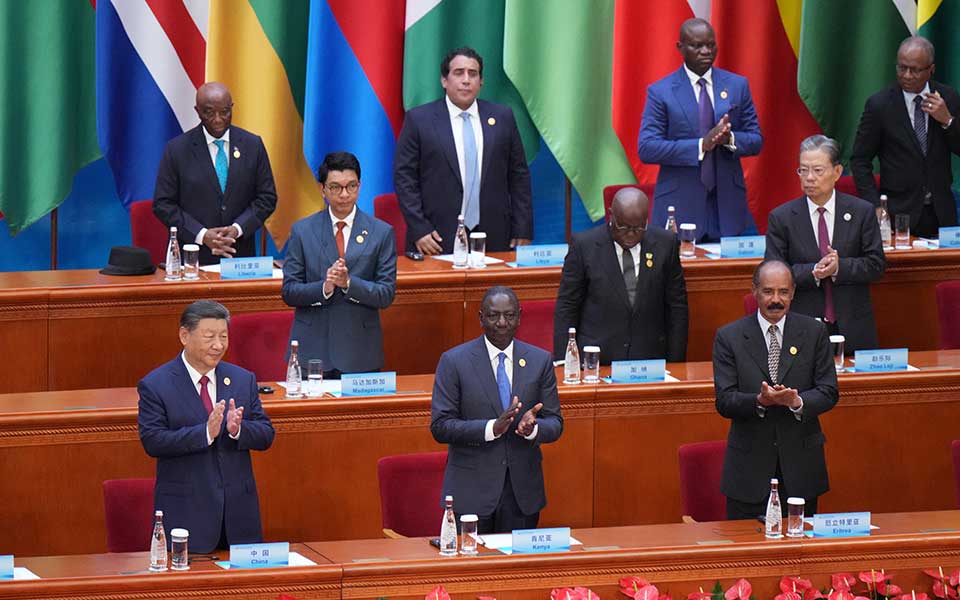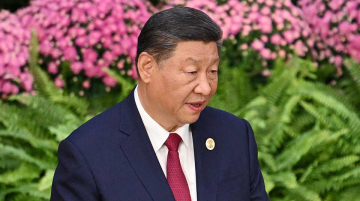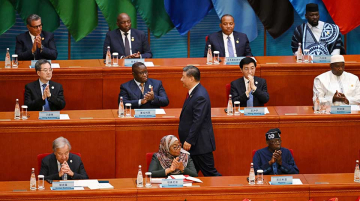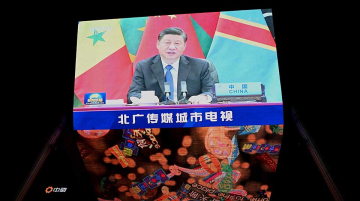
This year’s Forum on China-Africa Cooperation was partly aimed at reinvigorating a relationship many had framed as declining. Preceded by new data showing that Chinese project financing in Africa increased after a multi-year fall, China sought to use FOCAC to present an image of its engagement with the continent as strong as before yet newly pragmatic and lean.
In turn, around fifty African heads of state showed up in Beijing (many more than last year’s Belt and Road Forum), showing that FOCAC’s symbolic role as a key platform for South-South cooperation remains undimmed.
The summit also delivered the traditional FOCAC two-step: the announcement of an eye-popping funding target followed by a bout of head-scratching trying to work out what the number means.
This year’s target of roughly $51 billion breaks down into about $29 billion in credit facilities, $10 billion in pledged private sector investment, and $11 billion in aid.
As usual, these numbers raise some questions. We’re still unsure which forms of credit (concessional or not, export/import credits versus project-focused loans) are planned. It’s also unclear whether the investment agreements are already in place or if hitting the number depends on corralling companies in a similar way as the EU’s Global Gateway or the U.S.-led PGI.
The allocation of aid, including about $140 million in emergency food assistance, reflects how hard the continent has been hit by the economic turbulence of the early 2020s, with its sky-high interest rates and cratering currencies. In this sense, FOCAC 2024 acknowledges the economic headwinds hitting both the Global South and China.
However, it also seems more responsive to African demands in many ways. Take training, for example, Xi announced 6,000 training slots for military personnel, 1,000 for police, China-based training for 500 military officers, 60,000 scholarships for women and youth, 25 centers of Africa-China studies, 30 joint programs for clean energy development, 500 agricultural development programs, 500 agricultural experts sent to Africa and 1,000 political party members to be invited to China.
Whether those will all have skills-transfer benefits is a different question, but the numbers alone stand in contrast to the narrowing training opportunities for Africans in other countries. It also promises the future entrenchment of Chinese standards and systems across the Global South, as the region surpasses the tariff-fenced Global North in absorbing cutting-edge Chinese new energy vehicles and green electricity components.
This dovetails with the summit’s overarching theme: modernization. Chinese President Xi Jinping’s keynote speech doubled down on Chinese messaging over the last few years, not only framing China as presenting a distinct model of modernization but also linking Western modernization to its exploitation of the Global South via colonialism.
This contrasts with Western narratives of a single path to modernity via democracy, open markets, and institution-building based on universal humanist values inherited from the Enlightenment.
Instead, China’s narrative echoes accounts of Global South scholars who describe Western development (and the Enlightenment itself) as irrevocably tainted by colonialism and racism, and instead promotes divergent paths to modernization. In this context, its cooperation with Africa is framed as a joint South-South effort to rectify historical crimes.
Putting commitments to create one million jobs, boost vocational training, donate $140 million in military assistance, and so forth into this wider frame of competing models of modernization shows how FOCAC fits into Chinese ambitions to build a political network across the Global South.
The near-universal attendance by African leaders (similar to the queue of countries trying to join the BRICS group), in turn, shows that this approach is probably working.











